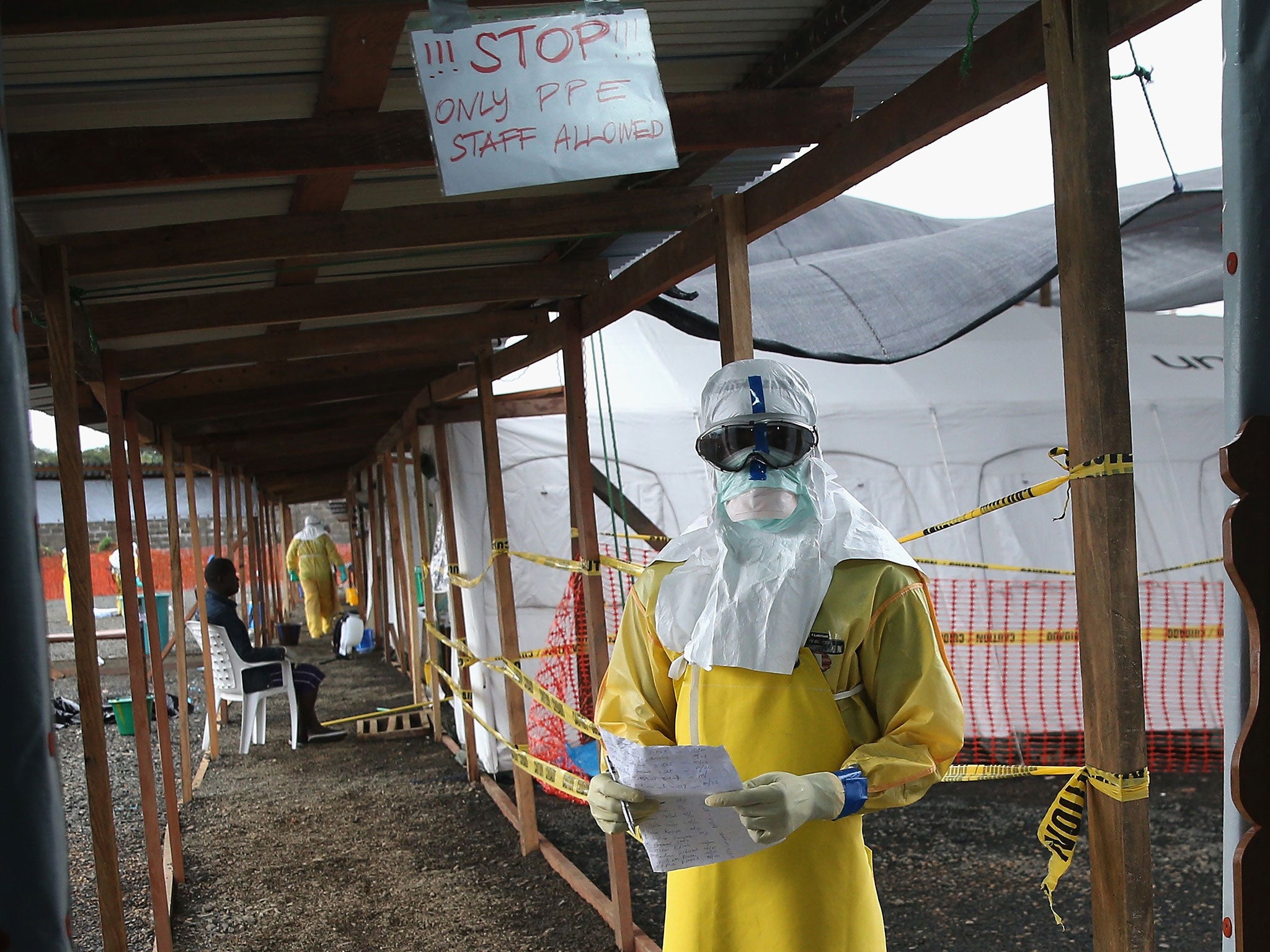Ebola outbreak: New vaccine trials to be fast-tracked in UK, USA and Africa
Trials could begin as early as the next few weeks if all goes to plan

A new Ebola vaccine aimed at preventing the disease that has claimed the lives of more than 1,200 people in West Africa is to be tested in fast-tracked safety trials in the United Kingdom, Africa and the United States.
Codeveloped by the National Institutes of Health (NIH) in the United States and the pharmaceutical multinational GlaxoSmithKline, human trials of the vaccine will be accelerated due to the current epidemic, which the World Health Organisation (WHO) recently identified as a public health emergency of “international concern”.
If ethical and regulatory approval is given, the UK research teams involved in the international consortium conducting the trial could begin their work within the next few weeks. Volunteers in the UK could be given the candidate vaccine as early as mid-September.
A £2.8 million grant from the Wellcome Trust, the Department for International Development (DFID) and the Medical Research Council will allow a team from the Jenner Institute at the University of Oxford to start the vaccine tests. Parallel trials will also start in the US.
The Oxford team will be led by Professor Adrian Hill. He said: “the tragic events unfolding in Africa demand an urgent response. In recent years, similar investigational vaccines have safely immunised infants and adults against a range of diseases including malaria, HIV and Hepatitis C. We, and all our partners on this project, are optimistic that this candidate vaccine may prove useful against Ebola.”
In Africa, vaccine trials will be conducted by the MRC in the Gambia. Trials will also take place in neighbouring Mali.
The WHO’s increasing concern about the level of the Ebola epidemic in West Africa, and the need for an emergency immunisation programme to begin as soon as possible, has meant that GSK will begin manufacturing almost 10,000 additional does of the vaccine while the clinical trials are still in progress.
If the trials prove to be safe and effective, stocks of the new vaccine could be made available to the United Nations by GSK, with a fast-tracked immunisation programme following almost immediately.
The new vaccine has been developed to combat the Zaire species of Ebola. This is the variant of the disease that is currently affecting West Africa. Because of its biological construction and the way it generates a protective immune response, it cannot cause a person who is vaccinated to become infected with Ebola.
Pre-clinical research has indicated the new vaccine provided “promising protection” to non-human primates which have been exposed to Ebola without showing any significant effects.
The initial results from the Oxford study – involving 60 volunteers - will be critical. If no adverse reactions are found in the UK study, further trials will be extended to a 40 volunteers at the MRC Unit in the Gambia.
A second African study, conducted by researchers at the University of Maryland’s Vaccine Development Programme in Mali , is scheduled to begin in the state capital Bamako.
Dr Jeremy Farrar, director of the Wellcome Trust, said: “This epidemic has shown how difficult it can be to control Ebola. How useful drugs and vaccines might be in complementing existing public health interventions can only be assessed in epidemics. The initial safety work we're announcing today with our international partners will hopefully make that possible during this crisis and for inevitable future epidemics.”
Professor Umberto D'Alessandro, director of the MRC Unit in the Gambia, said: “Thanks to the long-term collaboration between the MRC and the Gambian Government’s Ministry of Health, we have the proven capacity and expertise to carry out trials to the highest quality standards, including trials for vaccines similar to this one. This trial won’t benefit immediately those currently at risk but we hope that in a not too distant future we may be able to protect people against Ebola.”
The UK's International Development Secretary Justine Greening said: “We are cofunding these important clinical trials to find a safe vaccine for Ebola, as well as providing critical care on the ground. Britain is a world leader in medical research and mobilising our unique strengths to find a vaccine could be pivotal to containing Ebola and preventing future outbreaks.”
Subscribe to Independent Premium to bookmark this article
Want to bookmark your favourite articles and stories to read or reference later? Start your Independent Premium subscription today.

Join our commenting forum
Join thought-provoking conversations, follow other Independent readers and see their replies